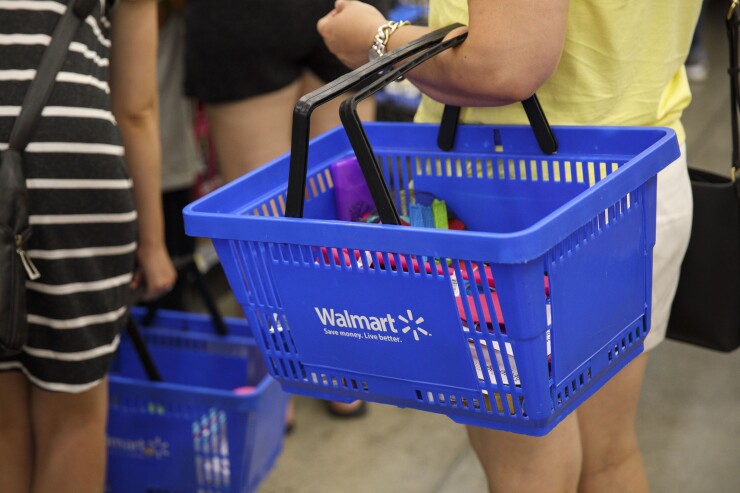First Data's conversion of Star from a PIN only to full-service debit network has paid off as retail giant Walmart no longer has to route some Star transactions to other network options.
In the early years of debit card transactions, First Data's Star PIN debit network could boast of being at the front of that transformation as one of the first to establish an interbank ATM network for California banks or to allow consumers to use ATM debit cards at point-of-sale terminals.
But for a retailer like Walmart to consider accepting all Star debit transactions to its menu of accepted payments, the network had to evolve.

First Data's latest upgrade incorporated dual-messaging capabilities for its debit network, giving consumers the option to initiate a PIN or PINless transaction as well as those that might still require a signature by merchant choice. The major brands began dropping signature authorization last month.
"We are already the third-largest debit network by a significant margin, and that requires us to be able to handle any transaction a consumer would want to conduct at a merchant location," said Barry McCarthy, executive vice president and head of network and security solutions at First Data.
Acceptance of all Star debit transactions at Walmart confirms First Data's Star debit product is now operable at both large and small businesses and retailers.
"Many competing U.S.-based networks are trying to compete by doing fancy PINless transactions, but many haven't done the work to have true dual-message capability, and the Star Network has done that," McCarthy said.
The dual messaging capability allows two distinct messages for each payment, the first to request an authorization from the issuer and the second to request the financial settlement.
PIN debit transactions use single messaging, where the authorization and settlement information is sent at the same time through the merchant acquirer. Previously, this was the only way a Star PIN debit transaction would operate at the Walmart POS.
Thus, if a retailer like Walmart prompted a consumer for a PIN, but the consumer preferred not to use a PIN on the transaction, Walmart had no option but to push that transaction through a global brand, which could handle dual messaging.
Six years ago, the Durbin amendment established new debit transaction pricing as well as mandating that merchants be allowed to have at least two options of unaffiliated networks for transaction routing.
"Durbin is where Walmart is coming from on this because they would like to drive traffic through the least expensive option if it is available," said industry analyst Russ Schoper, president of Business Development International Inc. in Atlanta. "It's important to First Data because dual messaging is dominated by Visa, Mastercard and the other global brands."
In that regard, there is competition for the debit networks to establish dual messaging as an option for retailers because a lot of PINless debit transactions are available to capture, Schoper added.
Earlier this year Fiserv's Accel debit network also revealed that Walmart would start taking signature-based debit card transactions from its network. Similar to First Data's setup with Walmart, a customer making a PIN transaction who preferred to sign for the transaction could do so, with the routing going to Accel rather than Visa or Mastercard.
For Atlanta-based First Data, it's carryover from its work of the past two years on Star, initially focusing on adding a PINless debit option for transactions less than $50 simply as a way to
It's also important for First Data to make the move to dual messaging in debit because transaction volume is increasing in the card-not-present arena, whether through e-commerce, mobile commerce or a growing internet-based universal commerce, McCarthy added.
"For a network to compete in that space effectively, you really need true dual-message capability," McCarthy said. "You need to be able to do a pre-authorization and a delayed settlement, or a pre-authorization and multiple settlements."
Those instances would come into play if a consumer purchased something from an e-commerce merchant that is only able to settle a payment when the merchandise actually ships, or if different pieces of a purchase are shipping at different times.
"That happens often on websites like Amazon, and you need the ability to do pre-authorization and possibly multiple settlements with other messages," McCarthy said.
The dual messaging puts First Data in a position to continue a strong business model for consumers at both the ATM and the point of sale.
First Data has incorporated PIN at the Star ATMs and at the point of sale for years, but now advances what it calls Star Access to handle PIN, PINless and signature, or whatever the network calls for without PIN or signature, all at the POS with a card or mobile device.





